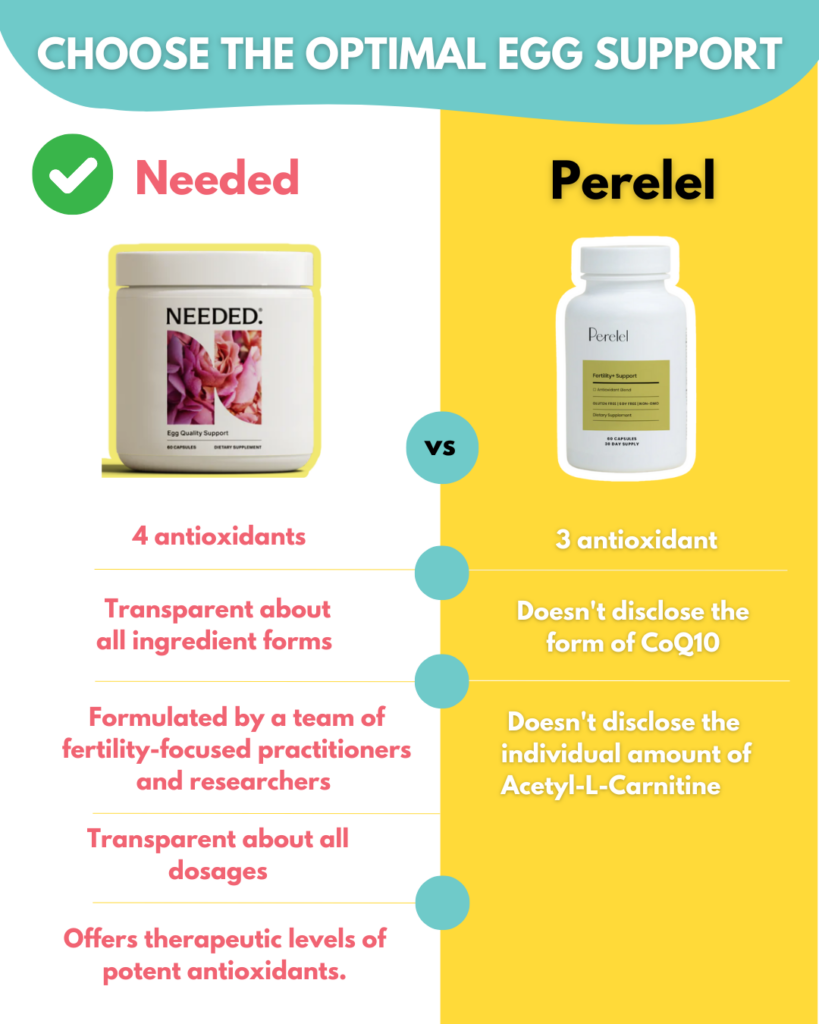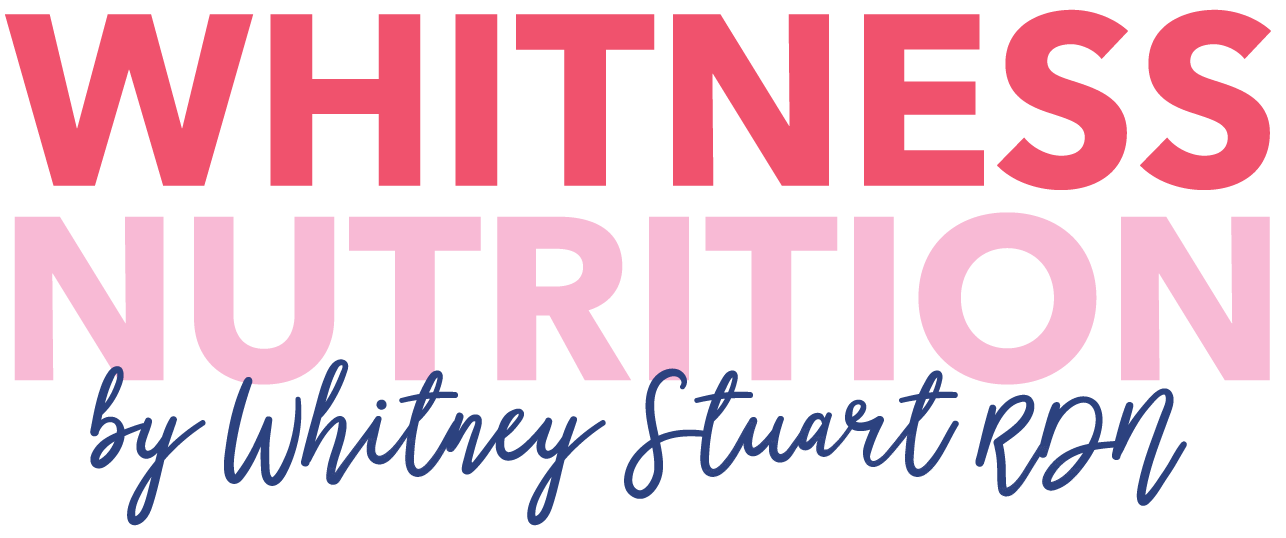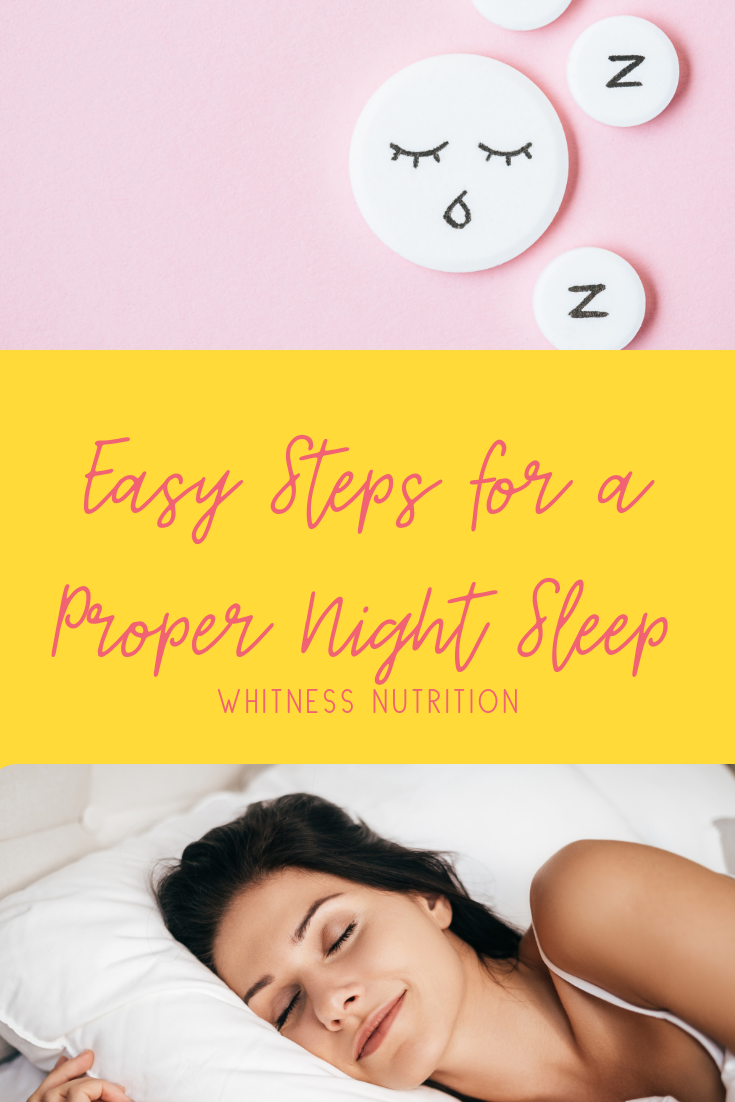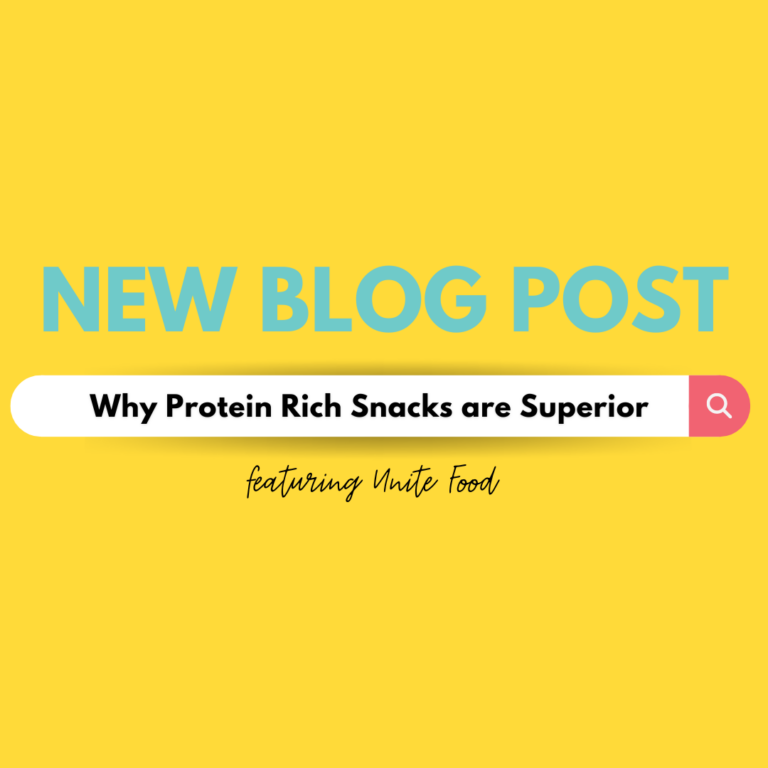Pregnant or Trying to Conceive? Here’s How To Get Egg Quality Support
As a dietitian and diabetes educator, I spend a lot of time educating on the importance of a nutrient-rich diet. This topic increases in importance during the fertile years of a woman’s life when preconception planning starts to become top of mind. As I became a mom this past year, my understanding of the importance of the preconception planning period and my passion to underscore how it’s severely underemphasized was catalyzed ten-fold. As a society, we’re doing more, but we’re still not doing enough to support all phases of motherhood. Specifically, the phase of preconception where so many healthcare providers emphasize the importance of weight loss but not nutrient gain. This post serves as a reminder that your diet and your efforts can improve the health of your body, your eggs, and your future child, even years before you plan to conceive. By focusing on the addition of quality nutrients and not strict dietary cleanses with marginal calorie intake, you can make a difference in your egg quality.
How can I support egg quality?
For starters, evaluate your lifestyle. The big players in optimizing your egg quality are:
- A well-balanced diet full of healthy fats, lean protein and plenty of vegetables.
- Exercise and physical activity, bonus points if you can get outside and get Vitamin D
- Lifestyle, i.e. do you smoke? Do you drink? Best to stop!
- Stress Management, as high cortisol levels can throw off the entire system
Will a fertility supplement help me get pregnant?

Supplements can support preconception efforts, but they should not be the only tool in your toolbox. It is best to approach supplements as part of a comprehensive fertility plan tailored to your specific needs. And like any medical care, should be under the guidance of a qualified healthcare professional. Supplements do not guarantee a successful pregnancy and are a piece of the very complex puzzle.
With that said, research has shown that egg quality is influenced by mitochondrial health and oxidative stress. Specific antioxidants have been shown to support optimal mitochondrial number and function, which are key to normal egg cell health.
Pregnant and looking for nutrition support and guidance? I offer a course just for expecting mamas which you can learn all about here.
What is in fertility support supplements?
We can not emphasize nutrition before, during and after pregnancy enough. Women are using drastically more energy, and need the extra nutrients for both themselves and their baby. While Prenatal vitamins contain a variety of essential vitamins and minerals that support a healthy fetus and mom, fertility support supplements often offer antioxidants and/or nutrients that promote reproductive health and fertility.
What should you look for in your egg quality/fertility support?
When considering fertility supplements, it’s important to approach the decision with thorough research and guidance from healthcare professionals. These professionals include dietitians and healthcare providers specializing in reproductive health.
Evidence-Based Ingredients: Look for supplements containing ingredients backed by scientific research for their potential effects on fertility outcomes. These may include antioxidants such as :
- Acetyl-L-carnitine
- R-Alpha Lipoic Acid (RLA)
- Pyrroloquinoline quinone (PQQ),
Notice something about all these ingredients? They are all antioxidants!
Antioxidants help protect our cells against damage caused by free radicals—molecules that are known to contribute to inflammation. If you’re looking to optimize your fertility journey, I also recommend increasing consumption of antioxidant rich foods. Aim to eat more fresh fruits and vegetables, as well as decreasing inflammatory foods, such as seed oils and refined sugar.
An easy way to decrease inflammatory foods in the diet for fertility support is by decreasing the intake of ultra-processed foods. Ultra-processed foods are those that can sit on the shelf for long periods of time and contain large quantities of hydrogenated fat, added sugar and sodium, and artificial flavoring and coloring.
Consider avoiding these top offenders for egg quality support.
- Sugary Sodas
- Packaged Snack Cakes and Pastries
- Instant Noodles
- Processed Meats (e.g., Hot Dogs, Sausages)
- Candy Bars
- Fast Food French Fries
- Frozen Pizzas
- Microwave Popcorn
- Commercial Breakfast Cereals (especially those marketed to children, Fruit Loops and Cocoa Puffs)
- Energy Drinks
These foods are best to be rarely consumed or avoided entirely, as they can contribute to various health issues such as obesity, heart disease, diabetes, and other chronic conditions. Opting for whole, minimally processed foods is a healthier choice for overall well-being.
Also worth asking is “what should you avoid in your fertility support?”
So many supplements on the market, including fertility vitamins, are chock full of fillers in the form of added sugar and sugar alcohols, artificial flavoring and dyes. It’s 2024 and it’s mind-boggling to me how many companies are still successfully selling gummy based vitamins that contain more sugar than actual beneficial supplementation. I recommend Needed’s Egg Quality Support, as it contains zero unnecessary additives and fillers, and uses functional ingredients in their most bioavailable forms.
Which egg quality support is best? 
Needed Egg Quality Support is, in my opinion, the best egg quality supplement on the market. Needed’s formula was created by perinatal health practitioners who specialize in fertility and truly understand the needs of this population. Unlike other products on the market, it contains optimal levels of antioxidants that support egg quality and fertility outcomes. The antioxidants in Needed have clinical evidence that support them.
Because women in the preconception period should also be taking a prenatal, I appreciate that it doesn’t contain overlapping ingredients, like Folate. Unfortunately, many egg-quality products on the market include Folate and other nutrients commonly found in prenatals, which can lead to dosages beyond what’s optimal.
I highly recommend Needed’s line of perinatal supplements. Their Prenatal Multi is a personal favorite, because Needed goes above the, quite frankly, low, RDA standards to ensure that women are getting exactly what they need to support their bodies, egg quality, pregnancy, and postpartum. This brand has been utilized and trusted by a large majority of my patients who are TTC, pregnant, and still looking for support postpartum.
Why Needed’s Egg Quality Support is key
The rates of infertility in the United States are rising. With 11% of women of childbearing age experiencing infertility, I don’t take conception supplementation lightly. Optimizing the body’s nutrient status and egg quality deserves concentrated attention. My inbox is constantly full of women struggling on their conception journey. It’s been helpful to have targeted supplementation by Needed as a piece of the nutrition plan that we create for their goals.
When should you start taking fertility support
It’s never too early or too late to focus on egg quality! The American College of Obstetricians and Gynecologists (ACOG) recommends starting supplements at least one month before pregnancy. But, research has shown that taking fertility support at least 3 months before trying to conceive or freezing your eggs is most optimal.
And that’s just the beginning! Check out Needed’s handy 5-Step Fertility Checklist for more guidance on preparing for pregnancy.
Three key things to look for in supplements to support fertility
1.Researched and Endorsed By Fertility Experts
In this same space, you also want to consider third-party testing. With more and more research coming out about the harmful effects exposure to toxins during pregnancy can have on the fetus, looking for a well-tested product is more important than ever.
Brands like Needed third-party test every batch for quality and safety. Unfortunately, many don’t or aren’t transparent about their testing.
- Dosage and Form: Ensure that the supplement provides the recommended dosage of each ingredient, as specified by research or healthcare professionals. Consider the bioavailability of different forms of nutrients (e.g., methylated folate instead of folic acid) for better absorption.
Other vitamins and minerals that are essential during pregnancy include Vitamin D, Iron, B Vitamins, Omega 3’s, and Calcium.
3.Safety: Assess the safety profile of each ingredient, considering any potential interactions with medications or existing health conditions. Consult with a healthcare provider, particularly if you are pregnant, breastfeeding, or have underlying medical concerns.
Is Needed egg quality support better than Perelel Fertility support?

In my professional opinion, yes. Unlike Perelel’s product, Needed’s Egg Quality Support contains four targeted and optimally-dosed antioxidants to improve egg quality. Perelel’s only includes Acetyl-L-Carnitine, an Acai Berry Powder and CoQ10.
One thing to note is the lack of transparency around how much Acetyl-L-Carnitine is included, as the amount listed on the label is mixed with Acai Berry Powder, potentially leading to a dosage that is lower than what’s studied for optimal outcomes.
Second, while CoQ10 is a powerful antioxidant, it’s best taken away from other nutrients. This is because CoQ10 stability can be compromised when it is encapsulated with other nutrients. Perelel includes CoQ10 in its formula. Needed offers a CoQ10 add-on, in a more optimal amount (200 mg vs 100 mg in Perelel’s product). Perelel is also not transparent about the form of CoQ10 used. This may mean they’re using a less bioavailable form. Needed is transparent about the form of CoQ10, ubiquinol, which is a more active form that supports egg and sperm quality. Needed’s Egg Quality Support plan contains both the Eqq Quality Support and a separate CoQ10 supplement.
How to take egg support?
Egg Quality Support
You can take two daily capsules of Needed’s Egg Quality support. Preferably, for best absorption, I recommend taking this 30 minutes before a meal. This season can be full of many supplements, so, if you’re sensitive to pills or often experience nausea, you can just take it right before your meal! This way, you’re more likely to remember it and make it part of your routine, as well. Because lunch seems to be as often an on-the-go meal, I have clients take more of their supplementation with breakfast. This helps to ensure they eat a good breakfast which will improve blood sugar balance!)
Bottom line; which Fertility support is best?
Needed’s Egg Quality Support gets my Dietitian vote, by a long shot. Unlike Perelel’s product, I recognize the value of Needed’s supplementation dosage transparency. I value their strict utilization of only the best absorbed versions of nutrients (such as the CoQ10 in their Egg Quality Support Plan). Needed’s product also offers a more robust amount of optimally formulated and targeted antioxidants for egg quality support.
If you’re in the process of trying to conceive, consider Needed’s Egg Quality Support Plan as part of your regimen. The combination of both CoQ10 and rich antioxidants can support egg quality and fertility outcomes.
Start Needed’s Egg Quality Support and use code WHITNESS or click here to receive 20% off your first month.





